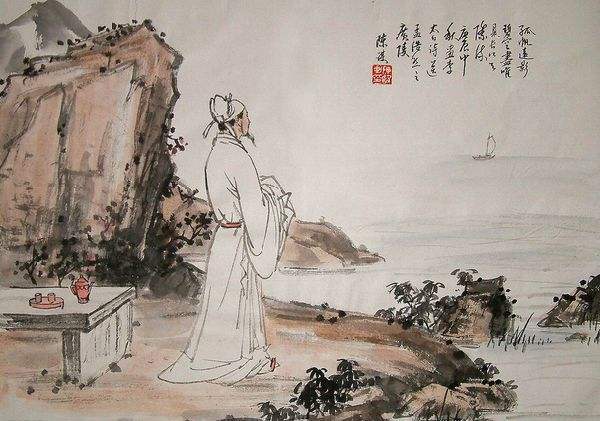Inspiration from Tang poet Du Fu

Du Fu (712 –70), known as the Poet Sage, was a prominent Chinese poet of the Tang Dynasty. He and Li Bai are often called the greatest Chinese poets in history. Many of his great works reflect his ambition to serve the country, though his official career was devastated by the An Lushan Rebellion in 755.
China is a poetic country and Chinese characters are suitable for writing poems. Chinese characters are monosyllabic, which make them more flexible than other characters. Also, the structure of Chinese sentences means they have lower grammar requirements and they don’t stress the usage of prepositions or adverbs. So the composition of Chinese poetry allows it to be formed using neat sentences with varied grammatical structures.
Since literature embraced the period of modernism, modern people’s pace of life is getting faster and their spiritual lives have become more diverse. They spend less time on writing and reading poems. These attitudes in society seemingly mean that the golden age of poetry has passed.
As an inseparable part of people’s spiritual lives and a traditional literary genre, poetry should be appreciated by all. So how can we revive Chinese poetry and inspire public interest in poetry?
Tang poet Du Fu, a representative of the highest achievements of classical Chinese poetry, has been respectfully called the Poet Sage by later generations. People continuously learn and study Du’s poems in order to explore his rules for writing poetry. His venerable experience of poem composition has played a significant role in the inheritance of traditional Chinese poetry.
Du, a patriotic poet, used his poems to closely connect the destiny of an individual with that of both the nation and its people. The lines of his poems reflected the spirit of self-discipline, social commitment and love for all people and creatures. His realist writing style demonstrated awareness of the need to preserve poems for posterity. His love for the nation and people, and the masterful application of language made him a success.
Du was good at learning. He kept learning from the experiences of previous poets. But the current poets are not as well read, which has directly led to the lack of elegance in their creations.
Moreover, Du worked hard to create amazing poems. He repeatedly revised and recited them until he was satisfied with the lines. Huang Tingjian, a poet and calligrapher in the Northern Song Dynasty, once highly praised Du’s earnest merit. He said that every word has its provenance in Du’s poems and articles. Du’s earnest pursuit of perfection played an inspiring role in later generations’ creations.
Shen Jinhao is a professor from the School of Humanities at Shenzhen University.
